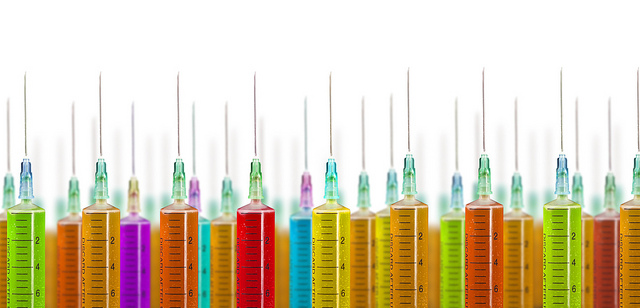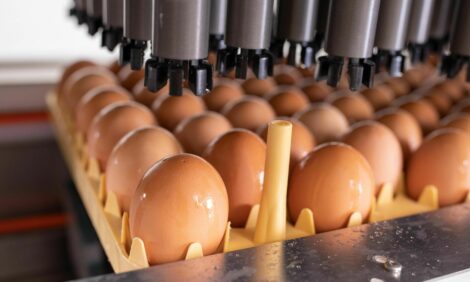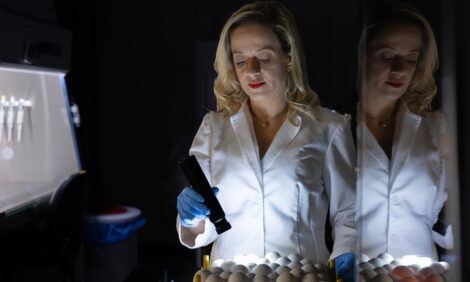



Protect Your Birds: How to Make the Most of Poultry Vaccines
There is a natural inclination to blame the vaccine when immunisation fails. Although this is a consideration, there are various other factors that could be to blame, Dr Scott Elliot from Protect a Chick told Glenneis Kriel.Vaccination is not a one hundred per cent guarantee that a flock will not develop a disease. Dr Scott Elliot, from Protect a Chick, explained that there will always be a few birds that do not react as well to a vaccine as the rest of the flock and immunisation might fail because of external factors.
Vaccines in effect should not be seen as a stand alone defence system against diseases, but part of a greater disease prevention strategy that incorporates a balanced diet, good management practices that reduces stress and effective biosecurity measures.
“Vaccination’s main goal is to limit losses, if a disease outbreak occur due to a biosecurity breakdown. It doesn’t help to merely vaccinate birds and forget about everything else that is required to ensure healthy birds,” Dr Elliott explained.

The vaccine
Immunisation might fail due to factors relating to the vaccine, human factors and the birds. When it comes to the vaccine, producers need to use one that will work for the strain of disease that is prevalent in their production environment.
A bird, for example, might still contract diseases, such as infectious bronchitis or infectious bursal disease, if the vaccine does not contain the proper strain or serotypes of organisms required to stimulated protective immunity.
“Producers need to work closely with their veterinarians to tailor a vaccination programme that supply birds with the vaccines that would help protect birds from the most prevalent disease threats in their production situation. This programme should also be continuously reviewed to ensure it stays up to date,” Dr Elliott said.
For optimal performance, the vaccines should be used before the expiry date and stored correctly throughout the supply chain. Live and inactivated vaccines should be kept between two to eight degrees Celsius and inactivated vaccines should never be frozen. They should be protected from direct sunlight and heat, but could be warmed to body temperature just before administration.
“Preservation of vaccines is important for optimal efficacy. Refrigerators need to be monitored to ensure the vaccines are kept at the right temperatures and the vaccines need to be kept in a cooler box during transportation.
"Leaving a vaccine in direct sunlight on the warm dashboard of a car on route to the chicken house, is a sure way of damaging the vaccine,” Dr Elliot said.
The human factor
Vaccines should be administered according to instructions with the right equipment. They need to be mixed properly and birds need to receive adequate dosages.
“Producers need to ensure that all birds receive an equal dosage, instead of some receiving an overload and others being undersupplied. This is especially important when the vaccine is administered via spray or drinking water. Relying on transmission of live vaccine from bird to bird is risky and can result in delayed immunity in the flock.
"Producers have to check that each bird have received a sufficient dosage. Birds that did not, run the risk of dying if the disease should break out,” Dr Elliott said.
Vaccinations should be administered at the appropriate times. Some vaccines, for example, won’t produce a good immune response when there is still maternally derived passive immunity in chicks.
“You need a vaccination programme that stipulates when what vaccine should be given to birds and keep record of this. You cannot simply administer a vaccine whenever you feel like it. Vaccines have to be given at the appropriate age and boosters have to be given at the right time to enhance immunity,” Dr Elliott said.
He added that producers should remember that it takes time for a vaccine to result in immunity.
Birds exposed to diseases before peak immunity is reached will be vulnerable. More than one vaccine should also not be given to birds at a time, unless the vaccines have been combined by a reputable manufacturer.
Combinations may cause interference and compromise the effect of the vaccine or result in side-effects.
The birds
For optimal response, birds need to be in a good condition when the vaccine is administered. Stress caused by, for example, environmental extremes, poor nutrition, parasitism and diseases, could reduce a bird’s ability to produce good antibodies in response to vaccination. It could also aggravate existing diseases or result in secondary infections.
“Birds need a functional immune system for a vaccine to work. A block vaccine could be used to prevent a disease, such as Newcastle, from spreading, but in general it is best to delay vaccination until the birds are healthy, especially when birds are suffering from immunosuppressive diseases, such as Infectious Bursal Disease (Gumboro), Chicken Anaemia Virus (CAV) and Avian encephalomyelitis (AE), ” Dr Elliot said.
He emphasised that vaccines should not be seen as a “magic wand” that will erase all disease threats: “It takes work and energy to protect poultry from diseases. Every immune system has its limit.
"Hence it is better to prevent diseases from breaking out in the first place, than to solely rely on vaccination to keep your birds healthy.”








